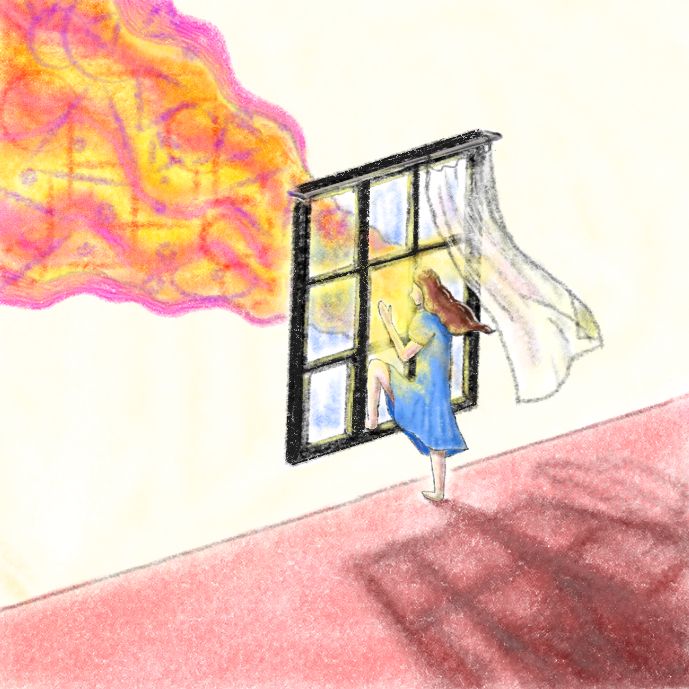Category: Autism
-

Autistic People’s Experience of Empathy: Autistic People Have, on Average, a Heightened Affective Empathic Response Relative to Non-Autistic People
Notably, there was a high proportion of hyper-empathic experiences. Many respondents reported their empathic responses to be overwhelming, or even distressing. These different experiences of empathy contrast with societal expectations of empathy, which often result in additional labor for autistic people as they navigate the non-autistic centered world. Autistic People’s Experience of Empathy and the…
-

“Parallel play was observed as one of the most frequent play states for autistic children in free play settings.”
We updated our “Flow” and “Parallel Play” glossary pages with selections from “Diversity in Autistic Play: Autistic Adults’ Experiences | Autism in Adulthood”. Parallel Play Many autistic adults discussed their preferences in social play, which relate to social play differences and who they preferred to play with. We found some potential social play differences, such…
-

Changelog: For an autistic person it’s about finding the right niche
For an autistic person ‘it’s about finding the right niche’, because ‘if you have a particular interest, you can really thrive in a particular niche.’ Happier on the outside? Discourses of exclusion, disempowerment and belonging from former autistic school staff We updated “Niche Construction”, “Cavendish Space”, and “⛺️🔥 Cavendish Space: Caves, Campfires, and Watering Holes…
-

The Double Empathy Problem in the Workplace: More Autistic Employees Accurately Interpret the Behavior of an Autistic Employee Than Non-Autistic People
The Double Empathy Problem and Perceptions of an Autistic Employee in the Workplace by @KASzechy et al found that more autistic employees accurately interpret the behavior of an autistic employee than non-autistic people Autism In Adulthood on Twitter “Autism and Employment Challenges: The Double Empathy Problem and Perceptions of an Autistic Employee in the Workplace”…
-

Three Therapeutic Approaches to Supporting Autistic People in Healthcare Settings
We adore the Resources Library at Neurodiverse Connection. It’s very well curated. Their collection of therapeutic approaches lists three great resources that we’ve recommended often and recommend again here. Three Therapeutic Approaches to Supporting Autistic People in Healthcare Settings: We quote these resources all over our website. Here are some featured quotes from each. Autistic…
-

Changelog: Presume Competence. “Nonspeaking” or “Nonverbal”?
We updated “Presume competence. Never assume that the ability to speak equals intelligence.” with a selection from “AAC and autism resources | This Is Not About Me”. BTW, we recommend the “This Is Not About Me” website and film. We wrote about it previously in “This Is Not About Me: The Journey from Patient to…
-

Autism Professionals: Have you heard of monotropism?
Not once in my ADOS training did they ever cover the topic of monotropism. That means people are getting trained to diagnose autism without a full understanding of the most important theory related around autism. Monotropism. Have you even heard of it? @playspark@tiktok Header art: “Attention Tunnel” by Betsy Selvam is licensed under CC BY-NC 4.0 Likewise, SpEd…
-

Changelog: Autistic Play at Forest School
We updated our Play glossary page with selections from “Autistic Play at Forest School : pretend play characteristics seen otherwise” and “About “Functional Play” | Just Stimming…“. …monotropism can be very effective in enabling forest school practitioners to comprehend the rationales behind autistic play behaviours so as to appreciate and validate autistic play culture, and…
-

The Monotropism Questionnaire Is Going Viral
The recently published “Monotropism Questionnaire” has gone viral on TikTok. Header art: “Flow” by Betsy Selvam is licensed under CC BY-NC 4.0 Our Monotropism pages at stimpunks.org are getting a corresponding spike in traffic. Likewise monotropism.org. Below, we gather context and helpful links to monotropism’s viral moment, including an important caveat from the questionnaire’s authors: the questionnaire should…
-

This Is My Space: Collaborative Niche Construction in Psychologically Safe Space
This is my space. It allows me to have control over one small part of a traumatic and offensive world. AuDHD and me: My nesting habits – Emergent Divergence I love that quote from David Gray-Hammond at Emergent Divergence. It nicely distills our Cavendish Space and collaborative niche construction advocacy. I added the quote to…
-

Lone Wolfing: The Joys of Autistic Solitude
Being solitary is being alone well: being alone luxuriously immersed in doings of your own choice, aware of the fullness of your own presence rather than of the absence of others. Because solitude is an achievement. Alice Koller It is commonly held that autistic people are lonelier than non-autistic people. This is believed to be…
-

Autistic Culture and the Advent of Decentralised Communities
Autistic culture is important for a number of reasons. It allows people to be a part of something in a world that has consistently alienated them. It creates spaces where we can embrace the machinations of our mind unencumbered by the normative standards of “typical” society. Autistic Culture has given rise to a community that,…
